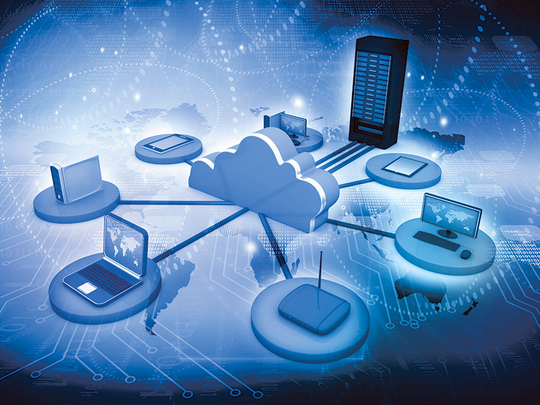
The Internet of Things is not a passing fad. Neither is it unproven technology. It is a global growth industry that is rapidly gaining the attention of innovative private and public organisations, especially in the Gulf.
It is playing a starring role in the digital transformations of companies and governments — engaging customers and citizens, empowering employees and civil servants, optimising operations and service levels, and reinventing business models.
“IoT has the potential to unlock up to 11 per cent in incremental GDP [across the GCC], driving growth and prosperity for the next decade,” wrote AT Kearney analysts in a 2017 report.
That growth is set to generate revenues for the regional IoT segment of $11 billion by 2025.
Regional industries are quickly becoming aware of the immense potential of IoT in digital transformation. DWTC is one example amongst these organisations that implemented a cloud solution, which uses cloud-based IoT services to connect sensors to their back-end system. Because of real-time insights into the location and usage of equipment, DWTC was able to optimise a range of functions, from equipment allocation to inventory management.
The intelligent cloud and IoT go hand-in-hand. Sensors relay their data to cloud stores and business intelligence emanates from powerful analytics engines that are also cloud-based. Consumption of insights can be pushed to dashboards on any device, so the architecture of a solution gives flexibility to the workforce, allowing decisions to be made in the field or back at base.
This model is of particular interest to another Gulf growth industry — manufacturing.
The manufacturing sector is now Dubai’s third largest, and the emirate’s Department of Economic Development (DED) expects around $19 million to be spent on R&D by manufacturing companies, as the sector expands from a current value of $11.2 billion to $16.1 billion by 2030, and creating more than 27,000 specialised jobs.
Manufacturers have noticed that so-called “servitisation” — where products are sold as packages with value-added services, such as support, maintenance and consultancy — is an obvious consequence of the Fourth Industrial Revolution. Because of IoT, connecting machinery and other equipment in a service ecosystem is now more affordable.
Decreases in the costs of cloud data storage and advances in artificial intelligence also mean access to extremely powerful analytics. That means manufacturers can gather and store data more cheaply, and act on it more effectively.
This model cuts costs and improves customer retention, because it can deliver predictive maintenance. In the past, support staff were reactive — receiving phone calls from customers about broken-down machinery. Multiple site visits may have been necessary if spare parts were not readily available, which meant downtime and irritation for the customer and wasted time and expense for the supplier.
But with IoT, sensors in installed equipment alert support staff ahead of time, and field technicians arrive with the right tools and parts for a short, one-time visit with minimal downtime for the customer. One of the greatest strengths of IoT is that, because data is sent to and from the cloud, it is easier to apply tight security from a single point.
Cloud architecture — built from the ground up with the highest grade of security integrated into every layer — protects data at rest and in transit. IoT is set to form the nervous system of the secure, smart society.
IoT allows for a better perspective on the operation as a whole — how devices are performing, how teams are reacting and resolving issues. This transformation is essential and will play a central role in the digital transformation of several GCC industries, from utilities and telecommunications to MICE and manufacturing.
Necip Ozyucel is Cloud & Enterprise Group Lead for Microsoft Gulf.












